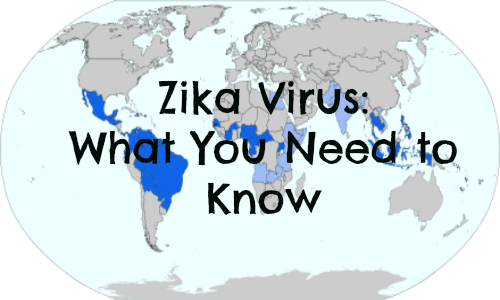*Disclosure: I am not a trained health professional. This is information shared with me by my OBGYN as well as information from the CDC. Please talk to your doctor or visit the CDC’s website for more information.
During my last visit to my OB, I spent some time talking about the Zika Virus. What is it? Why should women be informed? Is it a real threat or are people just freaking out like they did with the Bird Flu? He informed me that it is, in fact, very real and can be extremely harmful to pregnant women. Trust me, when I say I completely understand the stress and worries that frequent a pregnant woman’s mind. Everything that comes with the pregnancy journey can be overwhelming, but being informed can ease those worries and let you enjoy being pregnant. I decided to compile some of the basic facts and put it in language to make it easier to understand. Based on the information my OB gave me, along with facts from the CDC, here is what you need to know about the Zika Virus!
What exactly is the Zika Virus?
The Zika Virus is a type of virus that can last several days to a week. Symptoms are fairy mild and you don’t usually need to go to the hospital, which is why many people aren’t even aware that they have been infected in the first place. If you contract Zika, you may have a rash, fever, muscle pain or even red eyes, like pink eye. According the CDC, the Zika Virus is most commonly spread through a bite from an infected mosquito.
Why Should We Be Concerned?
If you are pregnant or planning on getting pregnant, you definitely want to be informed about the effects of this virus because Zika can spread from the mother to her fetus. The Zika Virus has been linked to the serious birth defect, microcephaly, which is when babies do not have properly developed brains. However, researchers are still unsure how likely Zika is to affect a pregnancy or the likelihood of the baby having birth defects because of the infection.
How Can We Prevent It?
There is no vaccine or medicine available to treat or prevent Zika. If possible, the CDC recommends not traveling to places that have had a Zika outbreak. Since the virus is transmitted most commonly through mosquitoes, you should take the proper steps to avoid mosquito bites by wearing long shirts and pants. Avoid places with standing water since these areas seem to be breeding grounds for mosquitoes, too. Treat clothing and gear with permethrin and use EPA-registered insect repellant. The CDC also recommends using condoms or refraining from sex if you are pregnant and your partner has been in an area with the Zika virus. Sexual transmission of this virus is possible.
Currently, there has been no local transmission of the Zika Virus in the United States. If you have visited an area that has confirmed cases of Zika, it is most important to visit your healthcare provider–pregnant or not. They can provide testing that will determine if you have Zika and provide you with their professional health guidance as to the next steps for proper care.
For more information about the Zika Virus, visit the CDC for up-to-date information.









